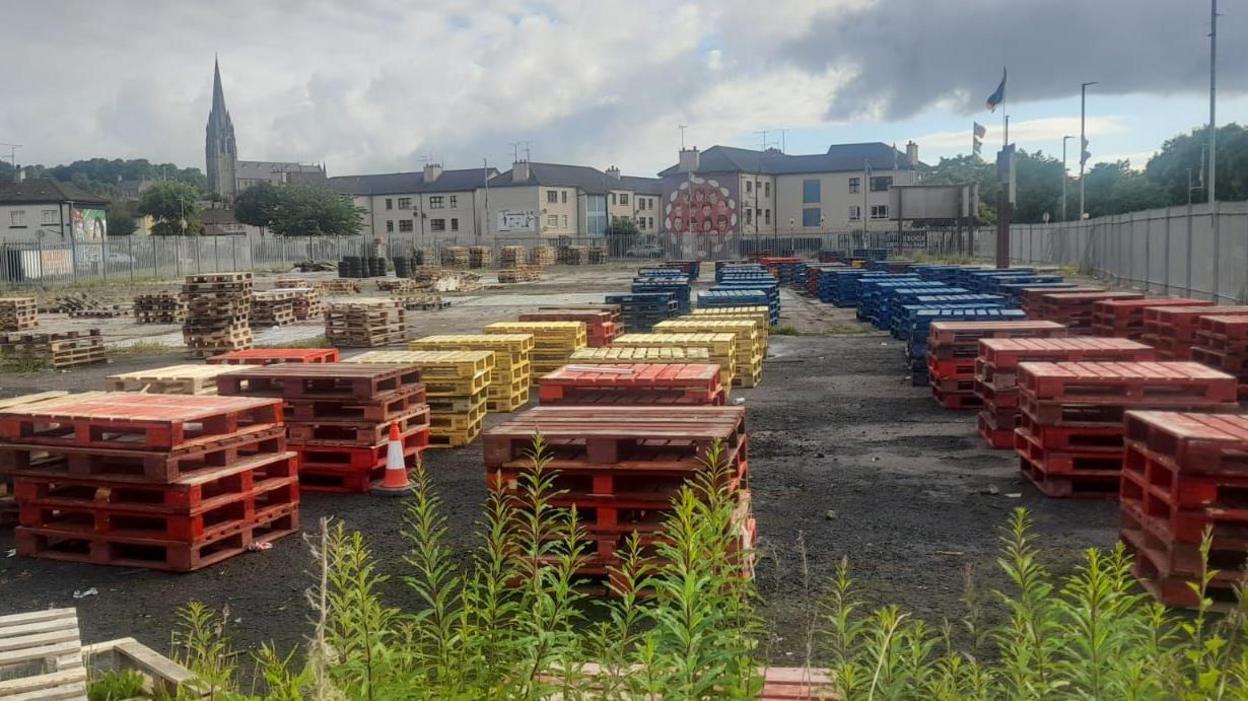Controversial bonfires are lit in Londonderry amid criticism
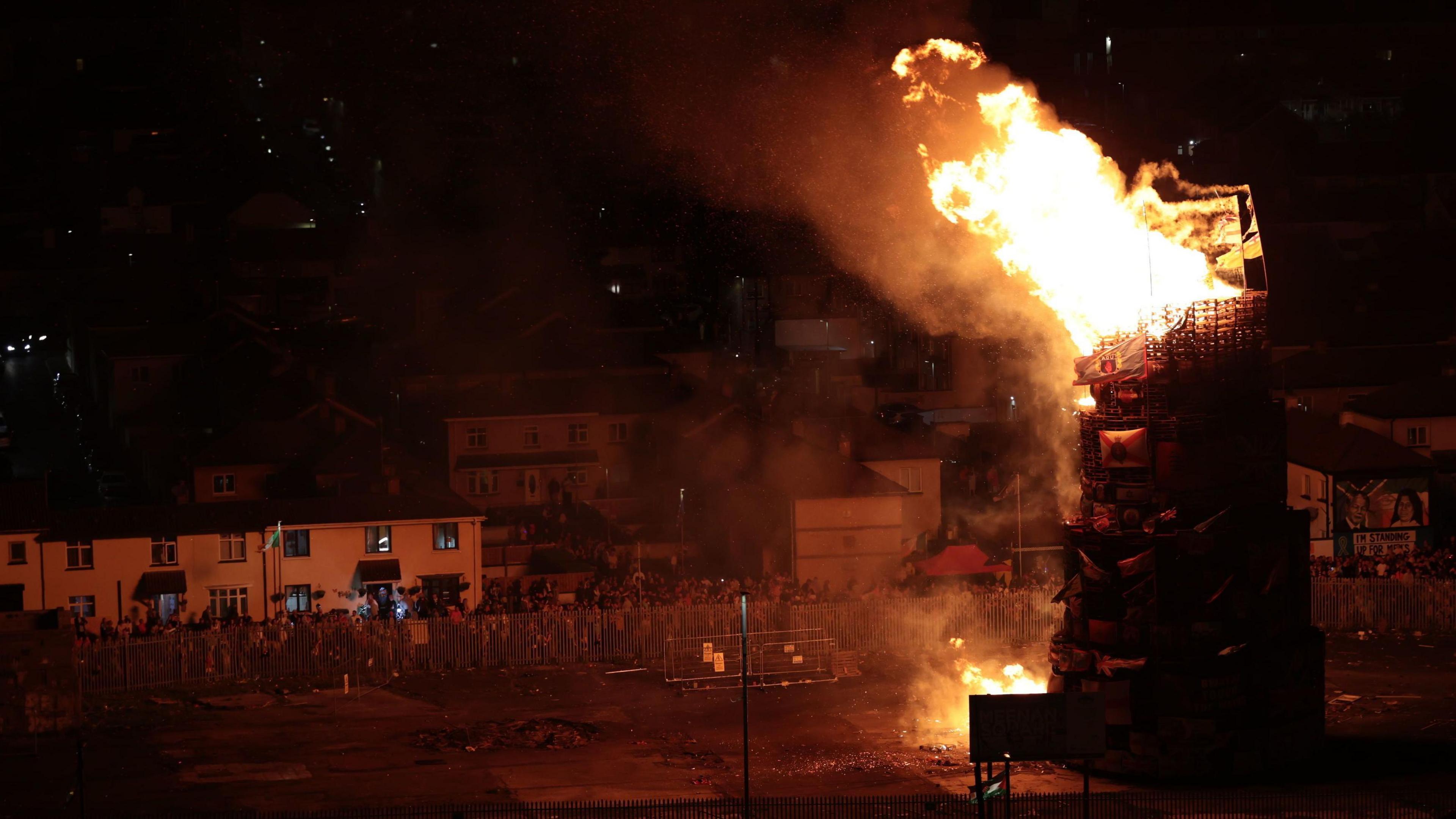
A bonfire was lit in the Bogside on Friday night
- Published
Controversial bonfires in Londonderry have been lit in the Bogside and Creggan areas on Friday night.
The bonfires have attracted criticism from the Catholic Bishop of Derry, Donal McKeown, who claimed that older sinister forces were exploiting young people to stoke up fear and anger in communities.
First Minister Michelle O'Neill said on Friday evening that there is no place in Northern Ireland for "illegal, unregulated bonfires" or for the burning of flags or emblems.
Earlier this week there was condemnation after the names of a dead child and a former senior detective who was shot and seriously injured, appeared on a bonfire in Creggan.
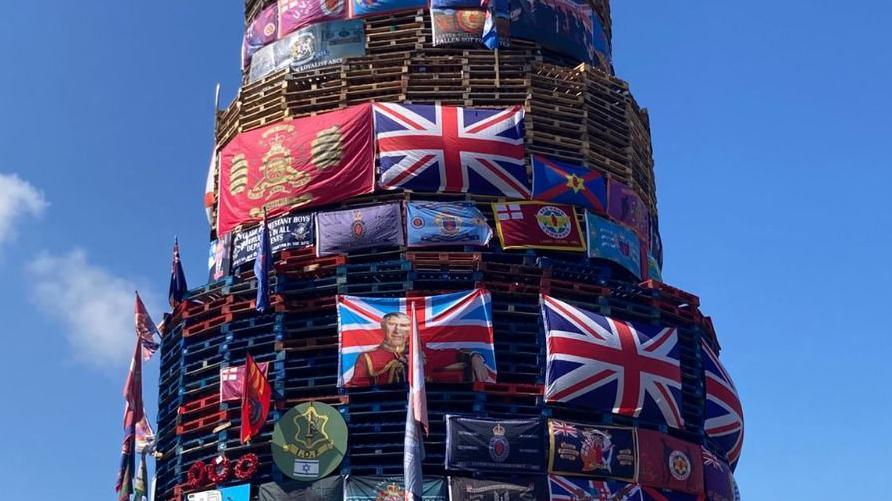
Items placed on the bonfire on Friday morning in the Bogside included, poppies, union flags and an emblem of King Charles
Other names on the bonfire included what is understood to be a serving police officer, as well as Billy Wright, the murdered founder of the Loyalist Volunteer Force (LVF), and Sinn Féin assembly member Pádraig Delargy.
BBC News NI understands that one of the offending signs, bearing several names, has since been removed from the pyre.
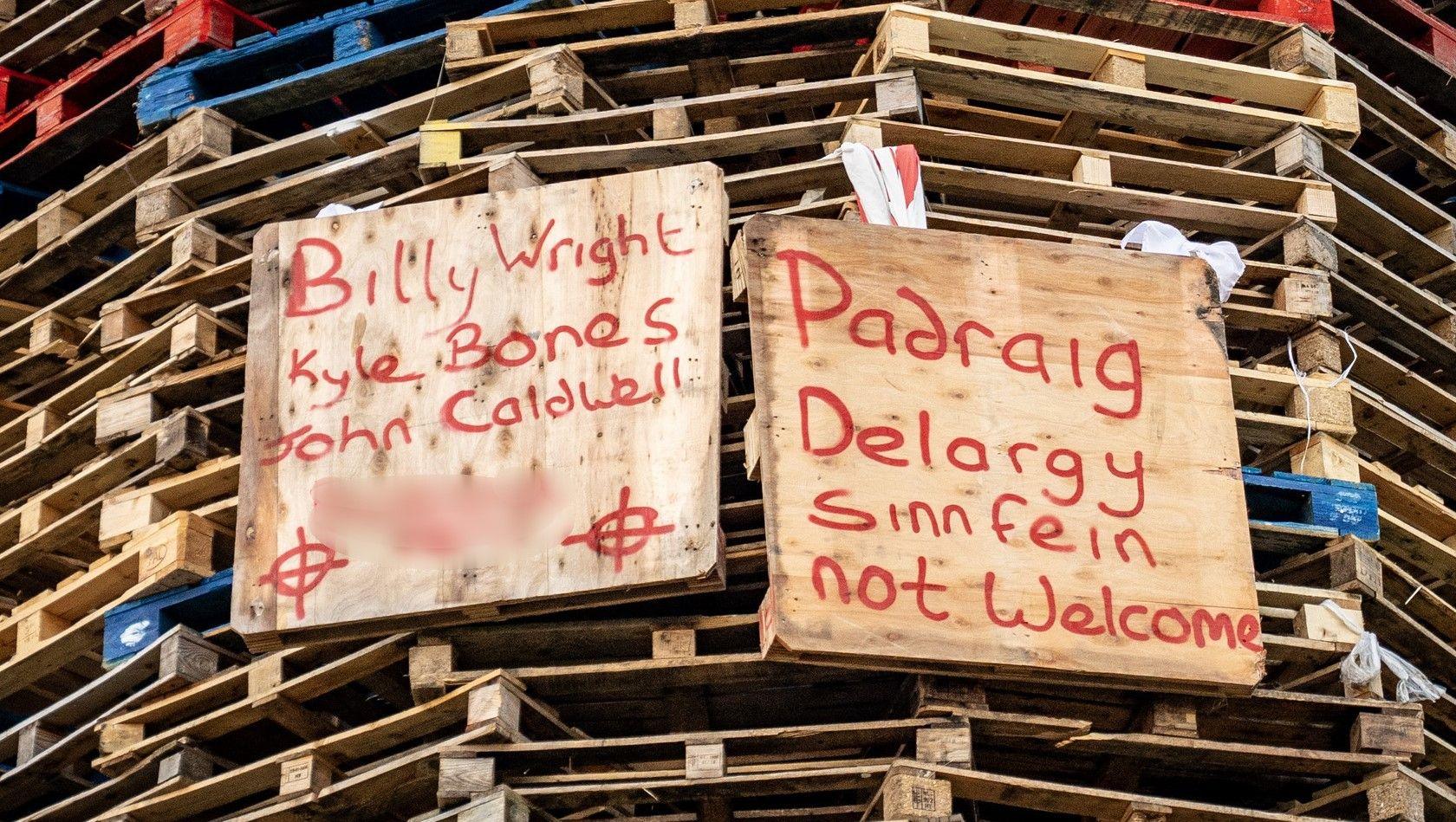
The names of a child who died in a drowning tragedy and a former senior detective who was shot and seriously injured, appeared on a bonfire in Creggan
O'Neill said the majority of people want "a better future for their children and grandchildren, free from sectarianism and hate".
"There is no place for illegal, unregulated bonfires or the burning of flags and emblems, whether that's today in Derry or what we witnessed across the north in July," O'Neill said.
She said the city of Derry is "moving forward", adding the £300m city deal will transform the north west region.
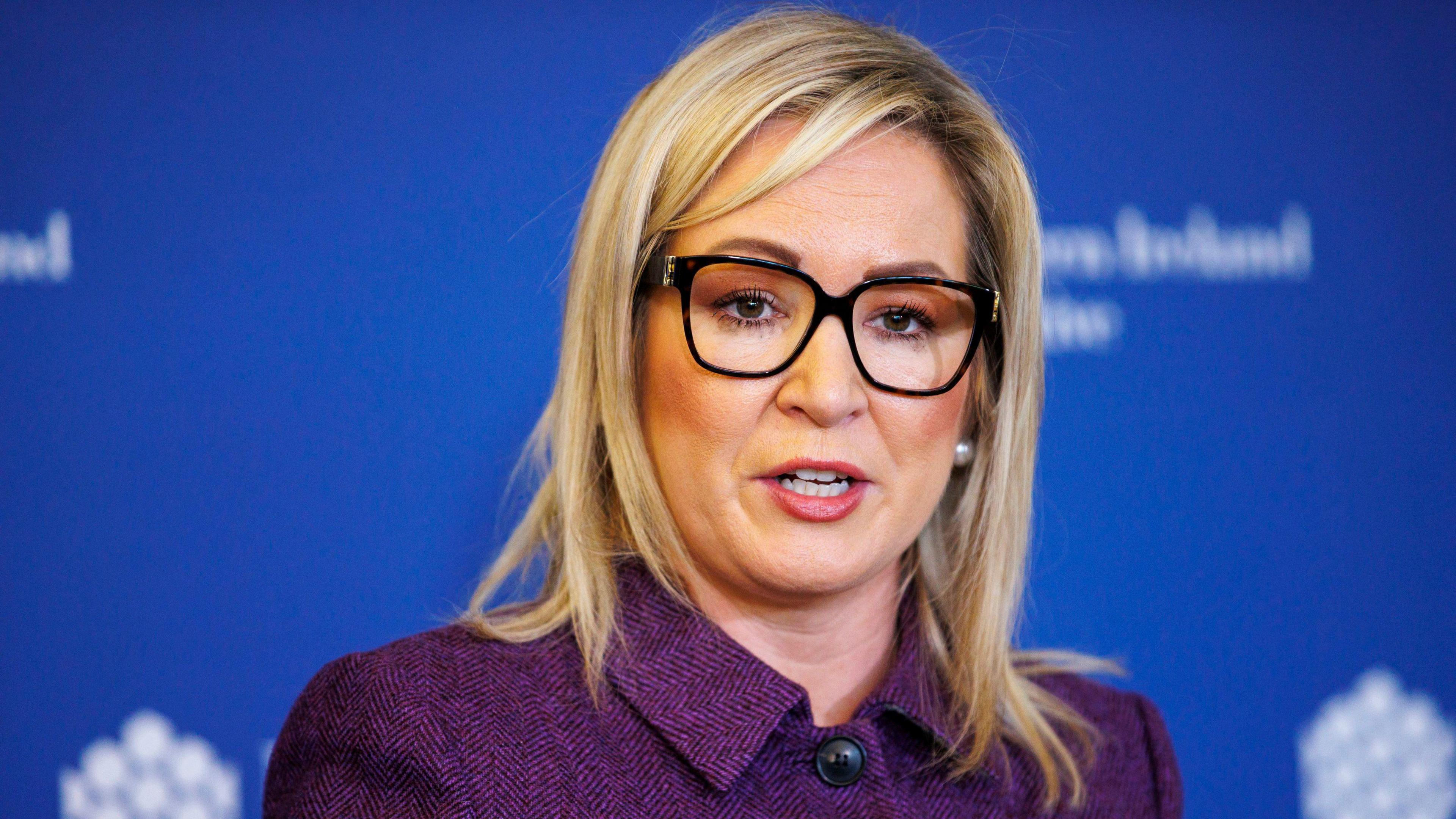
Michelle O'Neill says the vast majority of people want a future 'free from sectarianism and hate'
On Friday morning, poppy wreaths were placed on both bonfires and additional banners, flags and placards were put on the fire in the Bogside.
These included union flags, an emblem of King Charles and the flags of Israel and the United States.
Police in Derry are investigating if the US flag is the same one stolen in July from the grounds of a school built on the site of a former US naval base.
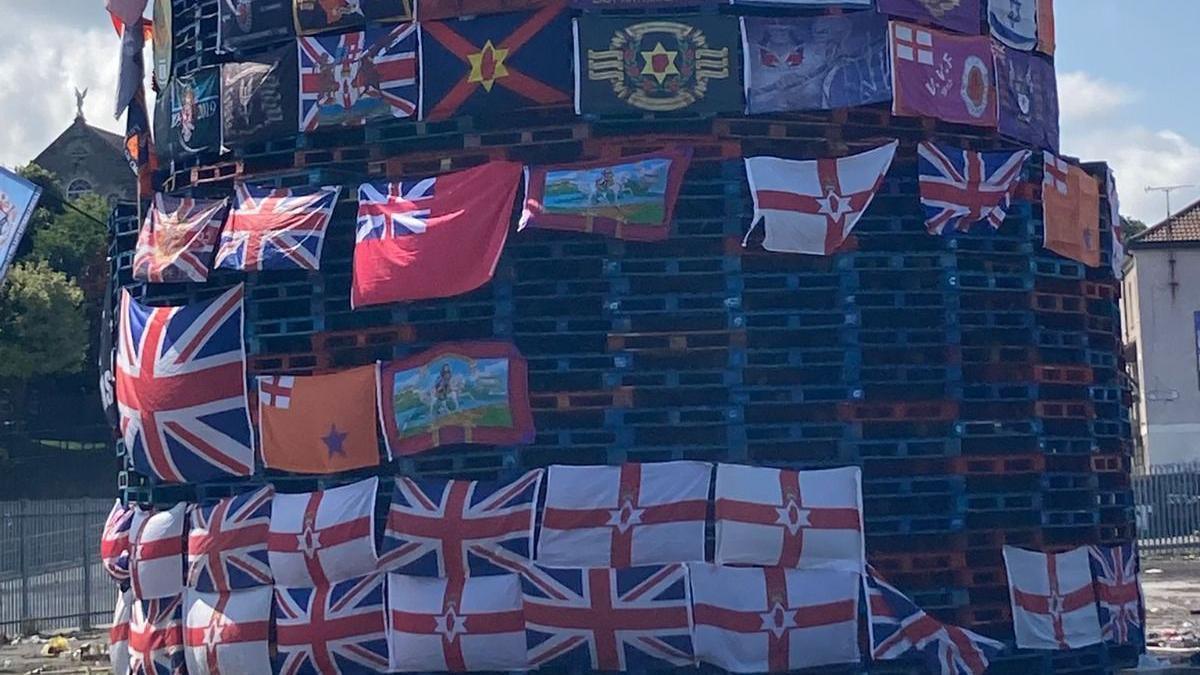
Previous bonfires in Meenan Square have attracted some criticism in recent years
The Bogside bonfire has been erected on a site earmarked for multimillion-pound redevelopment.
In May Apex Housing said it could not find a contractor willing to remove bonfire material from a site
Previous bonfires in Meenan Square have attracted some criticism in recent years.
Speaking to BBC Radio Foyle's North West Today programme earlier on Friday, Bishop McKeown said bonfires were being used to "exploit fear and anger".
"In some ways I am conflicted, in that there is a lot of pain and distress for many young people in life - I'm not playing down that reality," he said.
"The question is how do we deal with that."
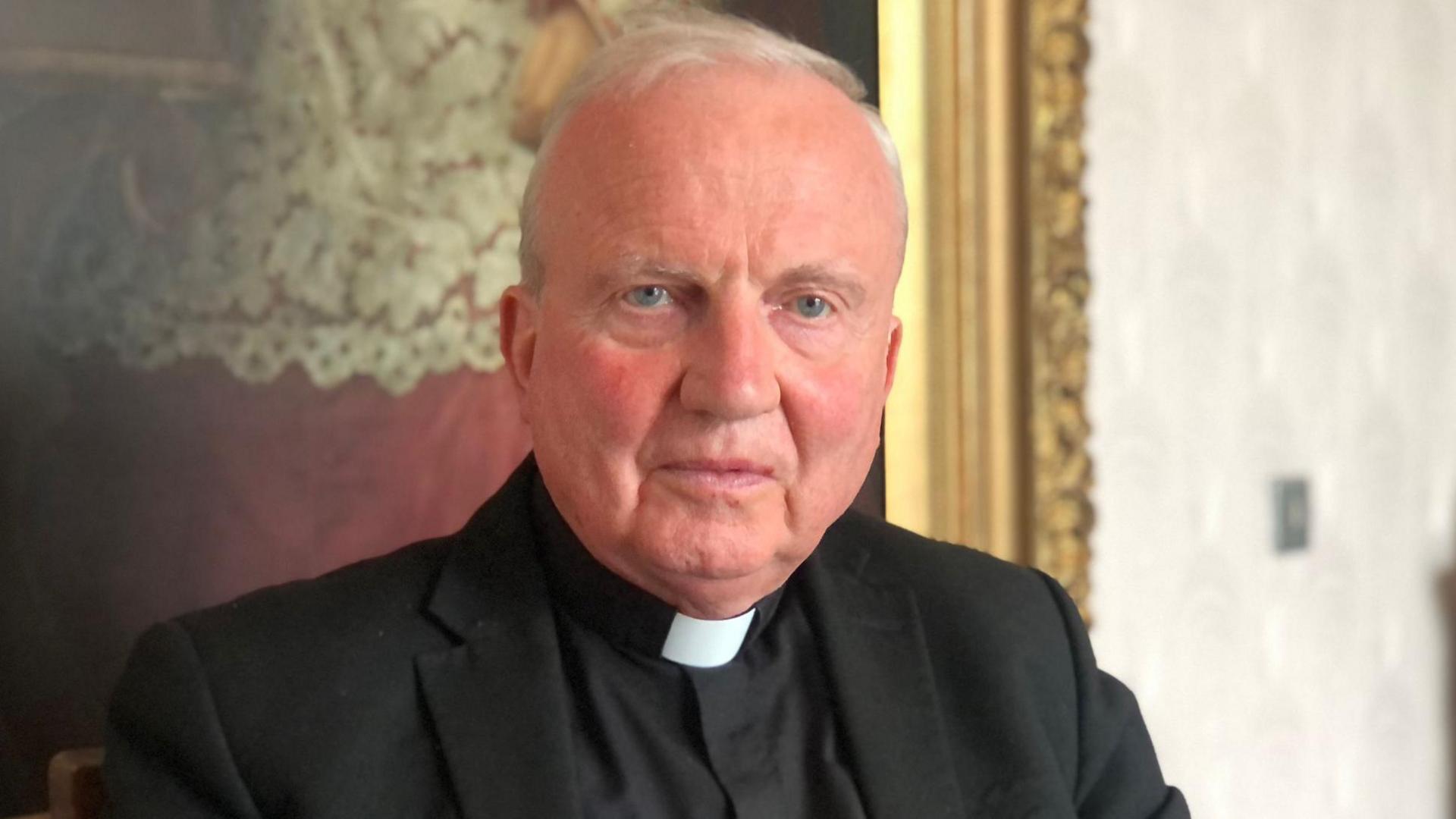
Bishop Donal McKeown says "no future can be built on the ashes of anger" ahead of plans to light bonfires in the city this week
'Ashes of anger'
He said he was convinced that having a bonfire that would "encourage anger" was not the way.
"Nothing beautiful grows in an angry head.
"Those who are helping young people to be angry are not doing them any favours."
Bishop McKeown said he was not going to condemn the actions of others, but he believed "a better way forward" had to be found.
"There is always a risk that older, sinister forces will use young people and say this is the way forward - you name people you hate and burn it on the bonfire.
"No future can be built on the ashes of anger."
Previously, the Police Service of Northern Ireland (PSNI) and the Police Federation, which represents rank-and-file officers, condemned the placing of names on the bonfire in Creggan.
The federation described it as "a reprehensible action by people who are filled with hate and have nothing to offer the wider community".
The police said they were aware of material, including drawings of cross-hairs and people's names, being placed on the bonfire and they would investigate all offences linked to it.
Durkan appeals for removal of bonfire material
SDLP assembly member Mark H Durkan had urged bonfire builders in the Bogside and Creggan areas to remove offensive material, such as flags and emblems, from them before they were set alight on Friday evening.
Durkan said he had visited the Bogside site weeks earlier and said such bonfires were moving away from cultural celebration and becoming acts designed to antagonise the other community.
This, Durkan said, leaves Derry "trapped in a cycle that is holding this place and our young people back".
Why are the bonfires being lit?
Bonfires on 15 August are traditional in some nationalist parts of Northern Ireland to mark the Feast of the Assumption, a Catholic holy day.
Some bonfires are also lit in August to commemorate the introduction of internment without trial of republican suspects during the Troubles, which was brought in by the UK government in 1971.
Related topics
- Published13 August
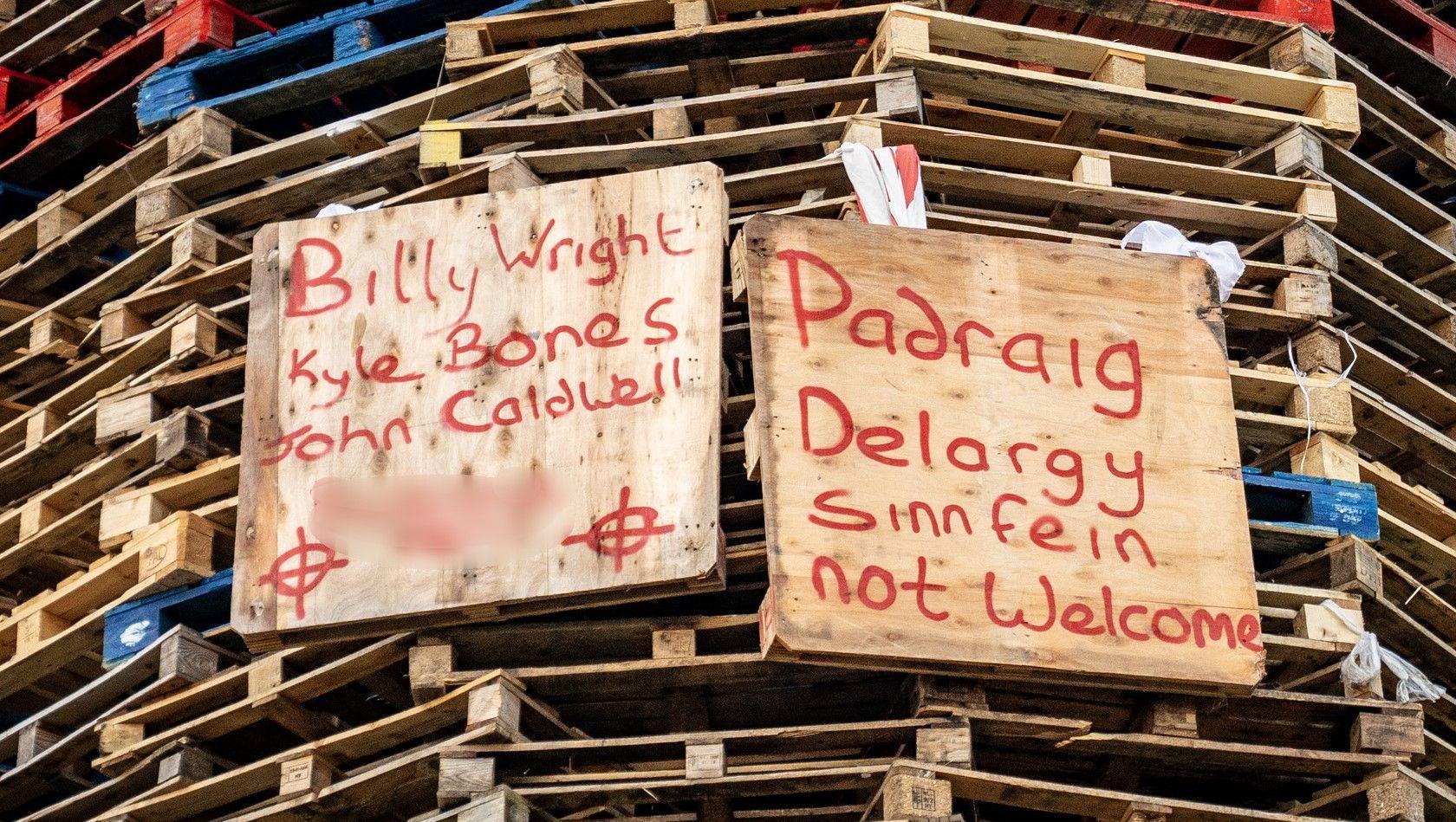
- Published29 May
